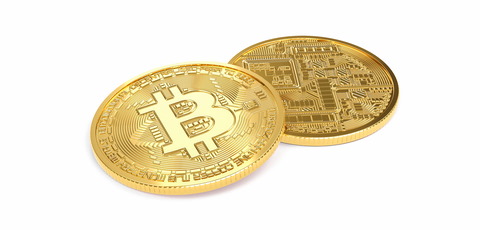Bitcoin

Pros
- Dominates the crypto market
- Traded in all exchanges and gaining traction elsewhere (eg PayPal, Mastercard)
- The biggest crypto brand
- Global ecosystem and brand recognition
- Largest capital flows to and from fiat currencies
Cons
- High transfer fees
- Experiencing issues scaling as a payment mechanism
- Expensive to mine
- Publicity regarding its ecological impact is gaining momentum
The Deeper Dive
Bitcoin is the parent of all digital currencies, the first kid on the block. Created in 2008, by an untraceable Satoshi Nakamoto, Bitcoin is the currency for a free technology called blockchain, the foundation technology for other digital currencies. Read ‘Polkadot Explained‘ for an example of a system that has evolved off this technology.
Banks and companies depend on private ledgers to track transactions and value, the records of all money movements in their system.
Blockchain technology allows for a open, distributed ledger or record where transactions are validated across a network using multiple sources and cryptography. This technology went on to spawn all sorts of other systems.
You’ve heard about mining. Well, mining in simple terms is the work done to prove the validity of transactions added to the distributed ledgers.
Miners
The miners are paid newly produced bitcoins for their work. They can then sell these coins to gain their reward, or bank them.
The number of Bitcoins that can be created is capped at 21million, with approximately 18.6 million already created. Approximately every 4 years the reward (payment) to miners for their work is halved (halving) thereby creating a natural upward trend in the price you see for bitcoin.
Paypal
Bitcoins can be exchanged for goods and services via various exchanges. Paypal started to allow for payment via Bitcoin in 2021, for example, and it’s a trend that looks set to grow.
So how do you go about investing in bitcoin today? Well rest assured it doesn’t mean investing a 5 digit sum. It is possible to purchase fractions of bitcoin.
You don’t have to be a computer expert to buy Bitcoin, it is now increasingly accessible. Bitcoins can be purchased through dedicated online cryptocurrency exchanges and many traditional investment websites are also allowing direct purchases.
Finally there is an increasing number of funds that are traded on the stock market that track the value of the coin. It is increasingly easy to buy the cryptocurrency.
Institutional investors
There is no denying that the cryptocurrency market is speculative and volatile but it pays to have at least a small proportion of your assets in this area. We have started to see more and more major institutional investors invest in Bitcoin such as through Grayscale trust.
So where does Bitcoin stand from a legal perspective? It’s fair to say that a general summary would be that the world’s legislative bodies are still coming up with a common framework on how to treat cryptocurrencies. As a result current legislation varies from country to country. A good high-level overview can be found here.
Trade Carefully
Given the lack of legislation, several regulatory authorities have issued warnings to investors about the volatile nature of the bitcoin and also against the trading of complex financial products in the cryptocurrency market such as services offering leverage and futures contracts.
There has been publicity around individuals losing access to their cryptocurrencies but this is a preventable scenario.
Access through online trading platforms is done via a userid and password that can be recovered. However, you should plan for the worst and allow for inheritance scenarios. Read our Kraken review for the low down on one of the top exchanges.
Frequently Asked Questions
Who is Satoshi Nakamoto? Who invented Bitcoin?
That’s The “Billion Bitcoin Question.” Satoshi Nakamoto was the name used by the developer or developers who developed bitcoin and wrote the bitcoin white paper. Nakamoto built the first blockchain database and was the first person (or persons) to solve the double-spending problem for digital currency on a peer-to-peer network. Nakamoto was active until December 2010 and has since gone to ground. Many people have subsequently claimed to be Nakamoto. The last thing anyone heard from Satoshi Nakamoto was an email to another BTC developer saying they had “moved on to other things.”
